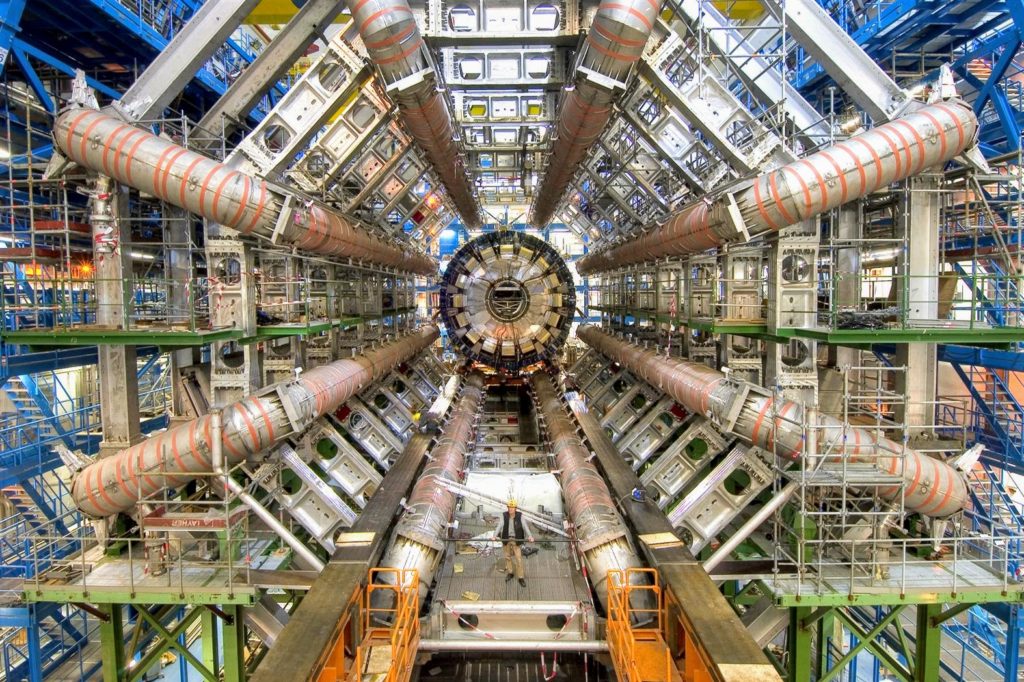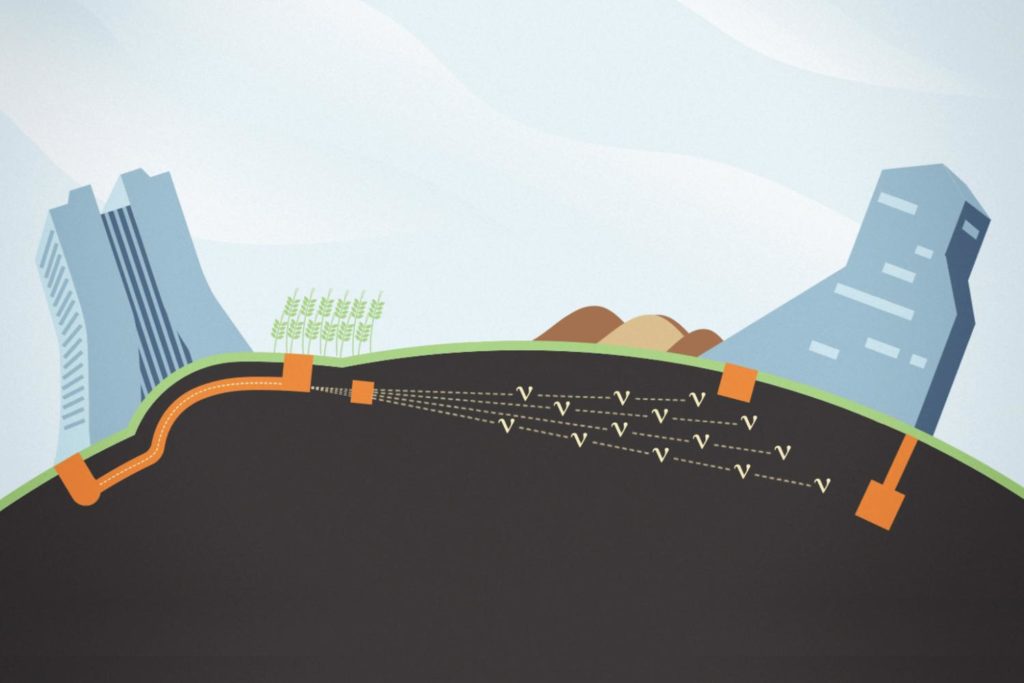I am an experimental particle physicist, and as such I study the Universe through its tiniest, most fundamental constituents: the elementary particles. I am involved in two international collaborations: the ATLAS Experiment, which is one of the detectors of the Large Hadron Collider (LHC) at CERN, and the Deep Underground Neutrino Experiment, or DUNE, which is a future detector to be hosted by the US laboratory Fermilab near Chicago, Illinois.

ATLAS detector at CERN Large Hadron Collider
Lying in an underground tunnel of 27 km circumference under the French-Swiss border near Geneva, the Large Hadron Collider accelerates particles close to the speed of light and let them smash together at the centre of big detectors. The ATLAS experiment is one of them. It records pictures of the collisions, which bring precious data for physicists on what the building blocks of the Universe are and how they interact together.

Deep Underground Neutrino Experiment (DUNE)
DUNE is a leading-edge international project dedicated to unlocking the most abundant yet most mysterious subatomic particle: the neutrino. It will consist of two massive detectors: one located at Fermilab in Illinois, and one located 1300 km away in South Dakota. It is aiming for groundbreaking discoveries on the origin of matter, the unification of fundamental forces in nature as well as the formation of black holes.
